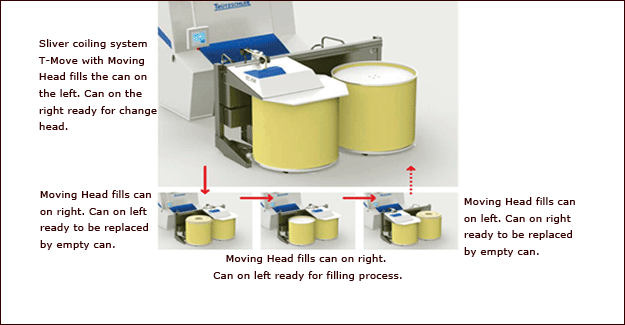The Special Package Will Provide The Much - Needed Impetus To Indian Apparel Industry
The Special Package Will Provide The Much - Needed Impetus To Indian Apparel Industry

The domestic garment industry has welcomed the Union government's special package for the sector. Apart from increasing the exports of garments from the country to around US$ 30 billion in the next three years from the present around US$ 17 billion, the package approved by the Union Cabinet recently is aimed at attracting investment worth around US$ 11 billion and generate 10 million new jobs in the industry. The measures approved include additional incentives for duty drawback scheme for garments, flexibility in labour laws to increase productivity as also tax and production incentives for job creation.
Industry players believe that the package will help realise the true potential of employment generation in the apparel sector. The thrust of the package is to make this labour-intensive industry cost competitive and achieve economies of scale, which can help it garner a larger share of the global market. They view that the labour reforms proposed would provide the much-required flexibility to the garment industry and would help the industry to meet their orders timely and be competitive too. Further, it would create more opportunities and attract investments in the long run.
"We welcome the special package which addresses the issues of textiles industry holistically. This is timely and would provide a much-needed impetus to the value addition and employment in the country," says Shishir Jaipuria, chairman, textiles committee, FICCI.
"The package announced by the government will be quite helpful in unshackling the garment industry and the results will be evident not only by way of additional employment generation but also additional exports. The targets for employment generation and investments envisaged in the announcement are achievable in the backdrop of measures likely to be in place as part of the package," says Rahul Mehta, president, Clothing Manufacturers Association of India (CMAI).
"The industry is very happy, especially because of the labour reforms that have been initiated. Measures like fixed-term employment and seasonal flexbility in labour laws will benefit the garment sector immensely," says Ashok G Rajani, chairman, Apparel Export Promotion Council.
Under the package, the cabinet has approved the introduction of fixed-term employment, which was an industry demand for long to deal with the seasonal nature of demand. A fixed term workman will be considered on a par with a permanent workman in terms of working hours, wages, allowances and other statutory dues. While the move is unlikely to result in higher burden on companies, it provides flexibility in hiring to deal with seasonal rush, especially for exporters.
Another key element is increase in overtime cap for workers. Overtime hours for workers will be fixed at eight hours per week in line with the ILO norms. This will translate into nearly 90 hours over three months as against 50 hours of overtime in three months as per the current norm.
"Through this package, the government has recognised the true potential of the garment sector which contributes heavily to employment generation and forex earnings. Increasing the overtime cap will further benefit both employers and employees. Fixed time employment provision will help in seasonal adjustment in the workforce required by units who more than often struggle to meet the tight schedules of delivery," states A. Sakthivel, president of Tirupur Exporters Association (TEA).
The Cabinet has also allowed a change in income tax laws to allow for deduction in case more permanent workers are hired by garment units. Instead of the current provision of the benefit accruing if workers are hired for 240 days, the government has now lowered the floor to 150 days. Industry players believe that this would provide greater flexibility. In what could also become the template for other industries, the government has made it optional for garment industry workers earning less than Rs 15,000 a month to contribute to the Employees' Provident Fund (EPF). The measure is also significant since the finance ministry has been trying to wean away employees from EPF to the National Pension Scheme.
The government says that it would bear the entire 12% of the employer's contribution of EPF scheme for new garment industry employees who are earning less than Rs 15,000 per month, for their first three years of employment. At present, 8.33% of the employer's contribution is being provided by the government under the Pradhan Mantri Rozgar Protsahan Yojana. The Union textiles ministry will provide the additional 3.67% of the employer's contribution, amounting to Rs. 1,170 crores over the next three years. If successful, these labour-related changes, experts view, could become the template for other sectors.
The package breaks new ground in moving from input to outcome based incentives by increasing subsidy under amended-TUFS from 15% to 25% for the garment sector as a boost to employment generation. A unique feature of the scheme which is going to cost the government around Rs 500 crore towards subsidy will be to disburse the subsidy only after the expected jobs are created. Experts are of the opinion that the increase in incentive will attract more investments and the help the garment makers in upgrading their capacities.



 textileexcellence
textileexcellence 







